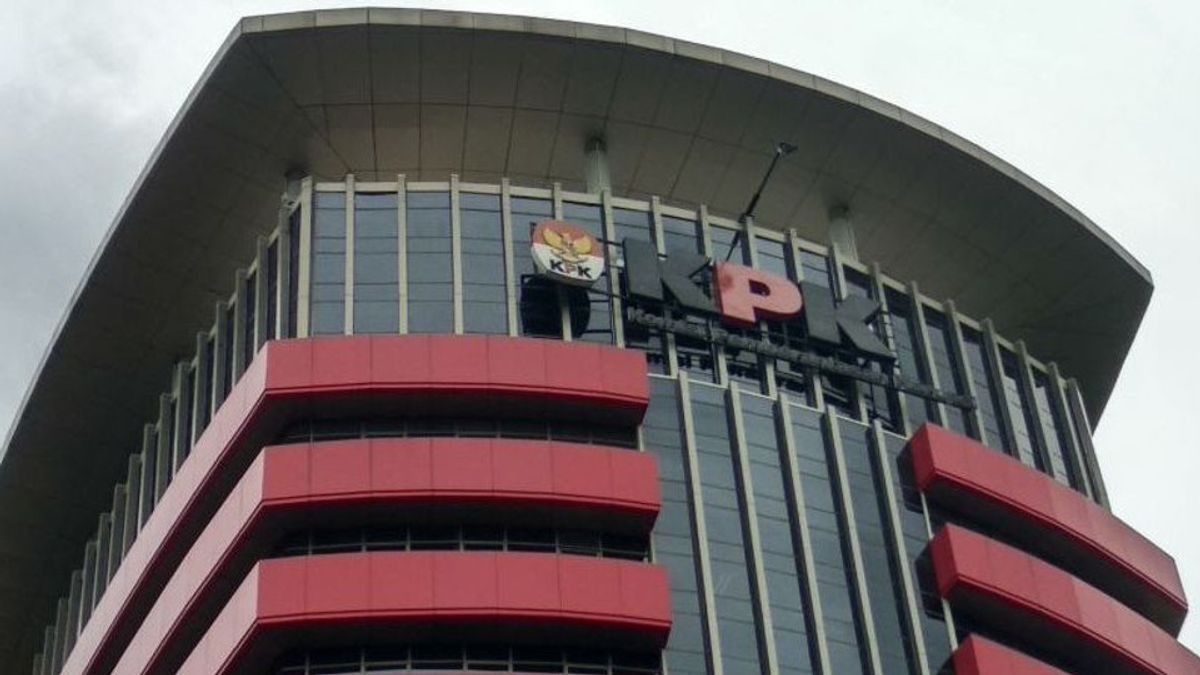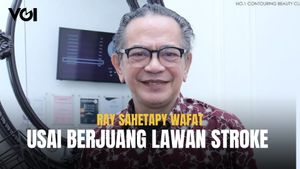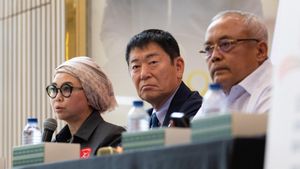JAKARTA - Polemic regarding the revision of the Corruption Eradication Commission (KPK) Law has recently occurred. Now the public is again confronted with the polemic of a Presidential Regulation (Perpres) on the KPK.
The government is currently drafting three Perpres as a derivative of Law Number 19 of 2019 concerning the KPK. One of them is the Presidential Decree on the Organization and Work Procedure of the KPK Leadership and Executive Organizations.
The draft Perpres is considered to contain several articles which are considered problematic which could have an effect on the independence of the KPK. Because, in it regulates that the leadership of the KPK is a state official who is under the President and is responsible to the President.
Member of Commission III of the DPR Didik Mukrianto said, in essence, the eradication of corruption by the KPK is to prevent and restore state finances from corrupt behavior. Meanwhile, the manager of state finances is the government. The government should be supervised by the KPK.
"It is true that the KPK with enormous authority needs to be monitored so as not to abuse power. However, its supervisors must also be independent and free from the interests of power," he said, when contacted, in Jakarta, Monday, December 30.
The chairman of the DPP Democrats assessed that the construction of the supervisory board appointed by the President injured the nature of supervision in the context of corruption by the Corruption Eradication Commission (KPK) against the use of state finances.
How is it possible, he said, that the KPK could effectively supervise the use of state finances managed by the government, because on the other hand the KPK is supervised by the President through the dewas he has chosen.
"Not to mention, in the draft Perpres that is circulating, which places the KPK as a ministerial level state official, who is under and responsible to the president as head of state could be contrary to the law? Why? Law 19 of 2019 clearly states that the KPK is conveying its responsibility to the president. , DPR and BPK, "he said.
Moreover, Didik continued, so far the role and function of the Corruption Eradication Commission has been very significant in presenting governance that is clean and free of corruption. Like other state institutions, as a state auxiliary institution, the KPK should be strengthened again.
"In relation to the draft Pepres KPK in circulation, it is very clear the political will of the President who wants to 'dictate' the KPK. It is a wrong logic and backsliding in eradicating corruption. Moreover, corrupt behavior in government circles is increasingly becoming, including in the Regional Government," he said.
Didik regretted the steps taken by the President. He considered that it had to be straightened out if the Presidential Decree really wanted to neutralize the KPK's authority. How is it possible that the KPK as a state organ that is also an independent state auxilary institution in carrying out its duties and authority to eradicate corruption will be limited.
Furthermore, Didik said, the source of this potential for corruption comes from the management of state finances. Where the government manages the budget. If the KPK is castrated with a Presidential Decree, it is certain that corruption will become increasingly rampant.
Not to mention, he said, with Law 19 of 2019 which provided room for the president to oversee the KPK through the Dewas elected by the President.
"Logically, the KPK supervises the President in managing the state budget, now the KPK is supervised by the President through Dewas. Not to mention the draft Presidential Decree which obliges the KPK to be accountable to the President? This accountability provision is clearly against the KPK Law," he explained.
Meanwhile, the draft presidential regulation on the KPK has drawn criticism, especially because it places the leadership of the KPK under the President. Coordinating Minister for Political, Legal and Security Affairs Mahfud Md admitted that it was okay for the draft to be criticized.
"Yes, it's okay to criticize it, just look at it later. That's easy, we all want to be good, NGOs certainly want to be good, we also want to be good," said Mahfud at the Coordinating Ministry for Political, Legal and Security Affairs, Jalan Medan Merdeka Barat, Central Jakarta, Monday , December 30, as quoted by detik.com.
The English, Chinese, Japanese, Arabic, and French versions are automatically generated by the AI. So there may still be inaccuracies in translating, please always see Indonesian as our main language. (system supported by DigitalSiber.id)








